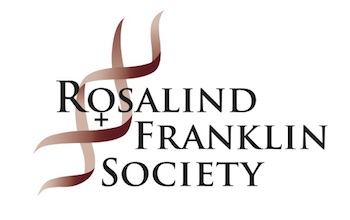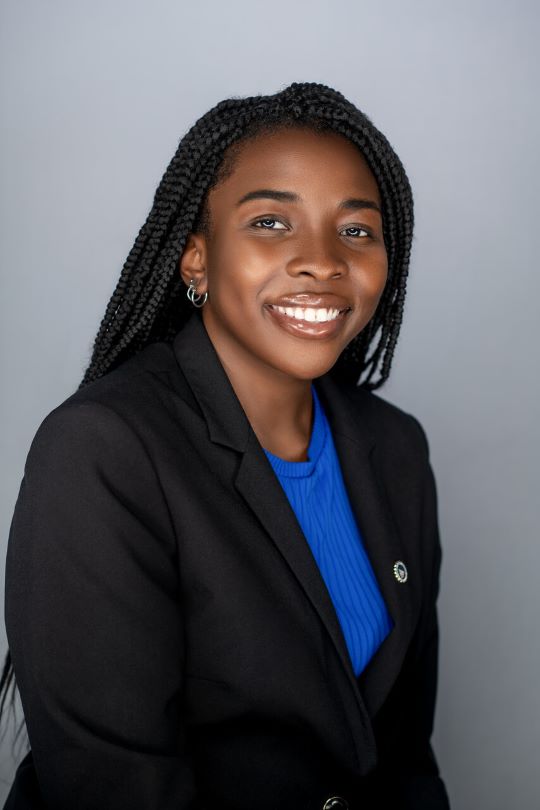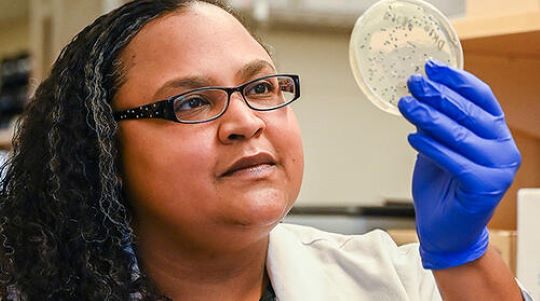RFS Briefings - March 2, 2021
Dear Colleagues,
The Howard Hughes Medical Institute (HHMI), a member of our Council of Academic Institutions, announced the selection of the 2020 Hanna Gray Fellows, a cohort of 21 early career researchers who are taking on some of the biggest challenges in the life sciences, such as understanding the inner workings of the brain or the complexities of the immune system. “These promising researchers are poised to do groundbreaking work and ready to inspire the next generation of scientists,” said HHMI President Erin O’Shea in a press release.
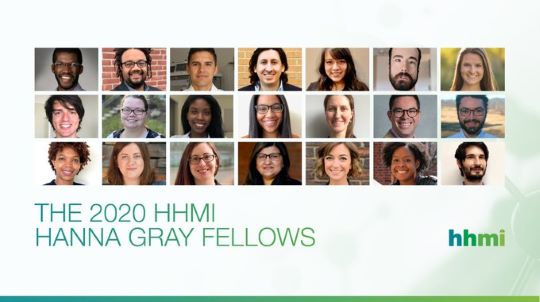
On the International Day for Women and Girls in Science, celebrated on 11 February, UNESCO and the L'Oréal Foundation honoured five women researchers in the fields of astrophysics, mathematics, chemistry and informatics as part of the 23rd International Prize for Women in Science. UNESCO also published a global study on gender equality in scientific research, entitled “To be smart, the digital revolution will need to be inclusive.”
Congratulations to Dr. Ruth Lehmann! She will receive the Vilcek Prize in Biomedical Science for her contributions to the understanding of primordial germ cells and the germ cell life cycle, and for her institutional leadership in the field. Dr. Lehmann is also a board member of Rosalind Franklin Society and was a feature speaker at our recent meeting: Labs, Leaders, Critical Connections.
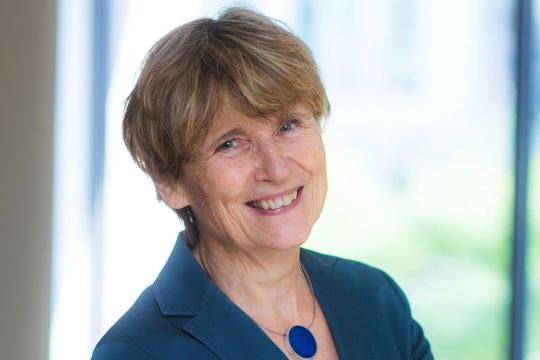 Dr. Ruth Lehmann. Courtesy of Gretchen Ertl. Dr. Ruth Lehmann. Courtesy of Gretchen Ertl.
Congratulations to Tara LeGates for being one of the finalists of the 2020 Eppendorf Prize. Tara LeGates completed a postdoctoral fellowship at the University of Maryland School of Medicine, where she established the importance of the strength and plasticity of hippocampus-nucleus accumbens synapses in reward-related behavior. Dr. LeGates is now an Assistant Professor at the University of Maryland Baltimore County (UMBC). Her lab studies how neuronal circuits integrate information to regulate behavior and their alterations in psychiatric disorders.
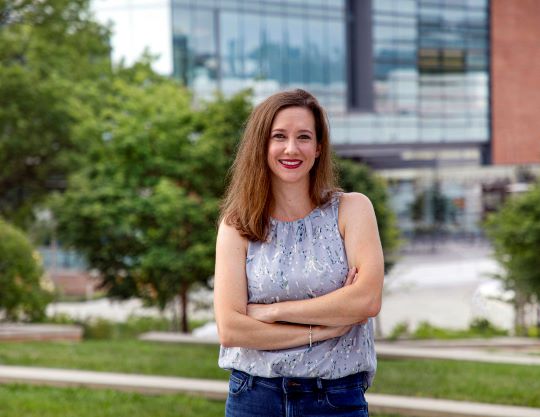 Tara LeGates. Credit: Melissa Penley Cormier. Tara LeGates. Credit: Melissa Penley Cormier.
Olufolakemi “Fola” Olusanya from Howard University and Chrystal Starbird from Yale University have received the inaugural Rising Black Scientist Award presented by Cell Press and Cell Signaling Technology. You can read their award-winning essays in the February 18 issue of the journal Cell. They will also receive a $10,000 award and $1,000 in scientific materials from Cell Signaling Technology. Read more about Yale postdoc Chrystal Starbird and Howard University Senior Olufolakemi “Fola” Olusanya.
Shirley Malcom, a speaker at our colloquium at the Wistar Institute, leads the SEA Change initiative at the American Association for the Advancement of Science which helps institutions transform themselves to recruit, retain, and advance the full diversity of people who are captivated by science. “I'm trying to help make a way for others, not by saying there's anything wrong with them but by addressing the issues that we know to be problematic within the system itself,” Malcom said in a recent article for Science.
Please continue to share important news and opportunities with us so that we may share it with you and others who are committed to supporting the careers of exceptional women in science.
With regards in these trying times,

Karla Shepard Rubinger
Executive Director
Rosalind Franklin Society
www.rosalindfranklinsociety.org
News
Piecing together the next pandemic. Dr. Jessica Manning, a public health researcher with the National Institute of Allergy and Infectious Diseases, is working in a small lab in Cambodia. She is on the lookout for emerging diseases. She plans to work with Cambodia’s center of communicable diseases, using metagenomics to start monitoring the animals in two local wet markets, where pathogens could make the jump to humans.
Dr. Marianne Legato wins PROSE Award in Biomedicine for “The Plasticity of Sex: The Molecular Biology and Clinical Features of Genomic Sex, Gender Identity and Sexual Behavior.” Since 1976, the Association of American Publishers Awards for Professional and Scholarly Excellence (PROSE Awards) have recognized the very best in professional and scholarly publishing by celebrating the authors, editors, and publishers whose landmark works have made significant advancements in their respective fields of study each year.
Millie Hughes-Fulford, NASA shuttle scientist, dies at 75. Millie Hughes-Fulford was NASA’s first female payload specialist. She conducted biomedical experiments on the physical toll of spaceflight on humans on board the space shuttle Columbia in 1991. She had aspired to fly to outer space since childhood, and finally achieved her goal on the space shuttle Columbia in 1991.
Arianna Rosenbluth dies at 93; Pioneering figure in data science. Dr. Rosenbluth, who received her physics Ph.D. at 21, was a physicist who played an important role in developing The Metropolis algorithm, a technique for generating random samplings. The algorithm became a foundation of understanding huge quantities of data. She died of complications of the coronavirus.
NASA Names DC Headquarters Building for ‘Hidden Figure' Mary Jackson. NASA has officially named its headquarters building in Washington, D.C., in honor of engineer Mary W. Jackson in a ceremony on Friday, February 26.
Rainwater Charitable Foundation announces second-annual Rainwater prize winners for brain research. Congratulations to Dr. Celeste Karch for winning the Rainwater Annual Prize for Outstanding Innovation in Neurodegenerative Research. She is an Associate Professor of Psychiatry, Washington University School of Medicine in St. Louis.
Supporting women in academia during and after a global pandemic. “More than ever, now is the time to challenge long-standing institutional traditions and policies that propagate gender inequity. Solving such widespread problems will not be easy, but with persistent effort and multipronged approaches, institutions can restructure academic science so that it supports and retains the best and brightest minds.” Here is a series of policy changes and institutional investments that will support the needs of women scientists so that we can achieve gender equity in academic science.
Scottish University draws ire for dismissing female gender studies lead. The University of St. Andrews in Scotland has been criticized for not renewing the contract of the female director of its Institute for Gender Studies. The move has raised questions about the underrepresentation of women in academia, particularly in a field of study focused on representation and identity.
The new leader of 500 Women Scientists on finding community and supporting women of color in STEMM. “We know that women are underpaid, but it’s disproportionately women of color who are underpaid for their work. And we do a lot of slave labor, especially within our communities. And so then being able to tell the women that, you know, we see you, we recognize you, we want to support you, and provide honorarium for project support. I think that’s huge,” said Lauren Edwards, the interim executive director of 500 Women Scientists, in an interview for STAT News.
Norway has the highest share of women scientists and engineers in Europe. Women scientists and engineers are in the majority in five countries across Europe. In Norway, 55 % of all scientists and engineers last year were women. That is more than in any other country in Europe.
The bacteria whisperer: Bacterial chatter and antibiotic resistance. Antibiotic-resistant bacteria keep Dr. Bonnie Bassler up at night. The molecular biologist, an RFS board member, made groundbreaking discoveries demonstrating that bacteria communicate and orchestrate group behaviors.
Science outreach in my mother tongue. Flávia Viana and Ana Teles are postdoctoral researchers who left Portugal for their studies or research. They both volunteer with Native Scientist, an organization that runs science-communication workshops for children. They aim to inspire children to pursue higher education and careers in science, technology, engineering and mathematics by running workshops in their heritage language.
UW chemist and oceanographer named Sloan Fellows. Ashleigh Theberge, an assistant professor in the Department of Chemistry and Jodi Young, an assistant professor in the School of Oceanography, have been awarded early-career fellowships from the Alfred P. Sloan Foundation. The fellowships honor those early-career researchers whose achievements mark them among the next generation of scientific leaders.
One on one with Davita L. Watkins: Samantha Theresa Mensah is studying aptamer-based field-effect transistors with the goal of neurotransmitter detection in vivo. She is a cofounder of the #BlackinChem movement.
Culture change needed for women in COVID-19 era. Nisia Trindade Lima, the first female president of Brazil’s Fiocruz health institute in its 120-year history, speaks about the challenges of integrating scientific and social research, closing the gender gap, and tackling disinformation on vaccines.
Entomologist Esther Ngumbi receives 2021 AAAS Mani L. Bhaumik Award for Public Engagement with Science. Esther Ngumbi, an entomologist whose “prolific engagement efforts have impacted the lives of farmers, students, and others,” will receive the 2021 Mani L. Bhaumik Award for Public Engagement with Science from the American Association for the Advancement of Science.
Astronomer and artist receives AAAS Early Career Award for Public Engagement. Annette S. Lee, an astrophysicist and artist, will receive the 2021 AAAS Early Career Award for Public Engagement in Science for “her collaborative, culturally relevant and community-focused projects grounded in indigenous knowledge of the stars.”
A feminine touch: Women have contributed immeasurably to science, but many do not realize that the first person to be called a “scientist” was in fact a woman. According to Joe Schwarcz, there were no “scientists” as such until 1833 when English philosopher William Whewell coined the term to describe Scottish mathematician and astronomer Mary Somerville in his review of her paper “On the Connexion of the Physical Sciences” published in the “Quarterly Review.”
For women in economics, the hostility is out in the open. New research details how men and women are treated differently when they make economic presentations.
Events
Diagnostics Needs for Infectious Diseases in the Developing World. In this talk, Dr. Megan Murray, a Professor of Global Health and Social Medicine at Harvard Medical School, will outline some of the steps involved in WHO's process of developing target product profiles and developing guidelines around the use of diagnostic tests.
Opportunities
The Prize for Enhancing Faculty Gender Diversity seeks to recognize those institutions whose biomedical and behavioral science departments, centers, or divisions have achieved sustained improvement in gender diversity. In addition to public recognition for their efforts in enhancing gender diversity, this NIH competition will also award a prize of $50,000 to each institution (up to ten institutions) with the best overall systemic approaches. The total prize purse for this competition is $500,000.
Europe launches recruitment drive for female and disabled astronauts. The European Space Agency (ESA) have launched their first recruitment drive for new astronauts in 11 years. ESA is looking to boost the diversity of its crews with particular emphasis on encouraging women and people with disabilities to join missions to the Moon and, eventually, Mars.
Apply now for The Tory Burch Fellowship at the IGI. The fellowship supports a woman entrepreneur in leading, growing, and scaling a business in genomics.
Marianna Limas, Social Media Manager
Nilda Rivera, Partnership and Events Manager
|
